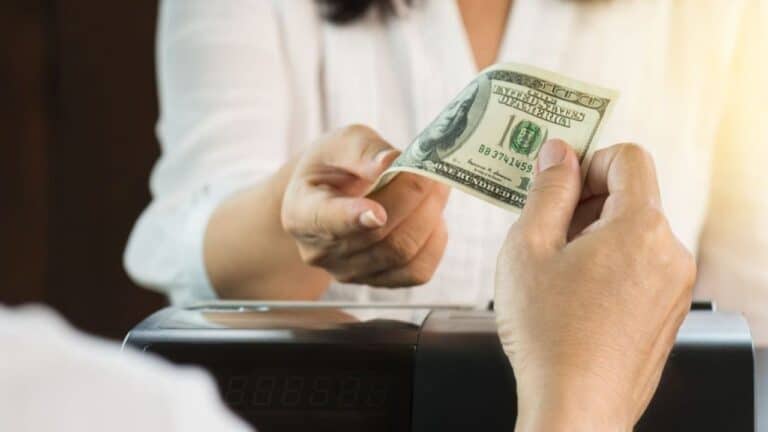24 of the Most Notorious Financial Scams That Shocked the World

A famous Bible quote is often shared regarding money’s effect on humankind: “For the love of money is the root of all evil: which while some coveted after, they have erred from the faith, and pierced themselves through with many sorrows.” While the first part is the most well-known, the latter clause describes the effects of greed on our souls. However, some money-chasers continue to manipulate people into handing over their hard-earned cash, knowing full well that they won’t be getting it back, but how low have people gone to do this? Spoiler alert: it’s very low.
1. The Original Ponzi Scheme

Some may not know that the name Ponzi derives from a real person who defrauded thousands of people out of their investments. However, Italian immigrant Charles Ponzi made his name — quite literally — in the early 20th century as he cheated thousands of American investors out of $32 billion to fund a sultan’s lifestyle.
According to Smithsonian Magazine, a Boston journalist in 1920 described, “A huge line of investors, four abreast, stretched from the City Hall Annex, through City Hall Avenue and School Street…all the way to my office,” when describing the mayhem caused by Ponzi’s boasting. For what would be the theft of half a billion dollars in today’s money, one can understand how his name went down so infamously. Forevermore, any scheme that duped later investors by paying early investors their returns from new investments would have Mr. Ponzi’s name attached.
2. Aussie Politician Found Out

In 2021, Australian politician Paul Whyte received a 12-year jail sentence for defrauding the public of AUD 27 million. Whyte used his corporate credit card to pay several shell companies from the public coffers, and an investigation found that the disgraced leader was using a bogus invoicing scheme to achieve his goals, then making debits from these accounts to fund a lavish lifestyle, including gambling and racehorse ownership.
3. Bernie Made off With Everything

Two words come to mind in the next story: nominative predetermination. Perhaps America’s best-known failed Ponzi scheme belonged to the aptly-named Bernie Madoff, who made off with thousands of people’s dreams. His Ponzi scheme lured investors with promises of great but fake returns, covering investors’ redemptions with new investors’ funds. Actor Kevin Bacon famously admitted his family had lost much of their fortune.
“It was a bad day. But pretty quickly, we were able to see all the things we had as opposed to whatever we lost,” said Bacon in a 2017 interview. “And those are the biggest cliches: children, health, love, a nice home. So we got through it together.”
4. Fyre Festival Never Ignites

Entrepreneur Billy McFarland and business associate rapper Ja Rule sent shockwaves through the live entertainment world in 2016 — just not for the right reasons. They announced an elite-level, glamorous music and cultural festival would be held in the Bahamas.
Using endorsements from big-name models and influencers such as Bella Hadid and Kendall Jenner, the Fyre Festival promised a collection of beautiful people in a stunning location. The event was a nightmare of shoddy planning, inadequate transportation and sanitation, and stranded festival goers, who ultimately had to pay a fortune to either not make it to the island or sleep in refugee tents.
The Fyre Festival, the subject of an entertaining Netflix documentary, was canceled on the first day, causing outrage and subsequent lawsuits, and landed McFarland a six-year prison sentence.
5. Malaysian Prime Minister’s Embezzlement

1MDB (not to be confused with the Internet Movie Database, IMDb) was a state-owned Malaysian investment fund set up in 2009. The fund borrowed a huge sum of government bonds, which were supposed to fund other investment projects.
Prime Minister Najib Razak co-founded 1MDB with Malaysian financier Jho Low to stimulate economic growth, but Razak and others siphoned the fund, worth billions, to offshore interests and shell companies. Fittingly, Razak’s son Najib was a producer on The Wolf Wall Street and used funds linked to 1MDB to back the movie. Razak and other associates now face potential decades-long jail sentences for their alleged embezzlement.
6. Spanish Government Corruption

In 2018, Spain’s High Court sentenced 29 prominent government members to a total of 351 years in prison. The Spanish Popular Party (PP) was the default center-right party and a mainstay for conservative Spaniards in the decades following the Fascist regime that ended in 1976. However, with little challenge to their political power, corruption became rampant over the next few decades, culminating in an investigation uncovering a web of money laundering, kickbacks, and bribery.
One part of the case was named “Spain’s Watergate,” such as its gravity. The Gürtel case involved non-compete business contracts involving PP treasurer Luis Bárcenas and a businessman, Francisco Correa, who went to prison for a combined 84 years.
7. Sam Bankman-Fried and FTX

The much-publicized fall of Sam Bankman-Fried is almost Biblical in its scale, so vast was the crypto empire this young genius had built. The so-called “poster boy” of cryptocurrency had made 41 on the Forbes 400, all by the age of 30.
However, his crypto company, FTX, started to unravel, and Bankman-Fried allegedly defrauded his customers by letting his other company, Alameda, tap into FTX’s funds and misuse them. Moreover, Bankman-Fried allegedly greenlit falsified balance sheets to borrow money from other firms, including Genesis and BlockFi. Bankman Fried was convicted of seven counts of fraud, conspiracy, money laundering, and campaign finance violations.
8. The Soccer Mafia Falls

In 2015, the soccer world didn’t reel in shock when they read the news that morning — most soccer fans already knew the level of corruption in the Fédération Internationale de Football Association (FIFA), but they just couldn’t prove it.
When U.S. officials unsealed a 47-count indictment on May 27, they unleashed a litany of charges against 14 defendants, including former Confederation of North, Central American and Caribbean Association Football (CONCACAF) presidents Jack Warner and Jeffrey Webb, among other influencers in the soccer world, with charges ranging from wire fraud to racketeering and money laundering.
9. The LIBOR Scandal

The London Interbank Offered Rate (LIBOR) scandal of 2012 involved banks manipulating their borrowing rates to appear more creditworthy. When Barclays Bank settled several criminal charges that year, it exposed other member banks’ fraud and conspiracy, which brought the matter to the financial authorities’ attention.
Student loans, mortgages, and other financial products all relied on LIBOR rates, which negatively affected prices paid by consumers since 1991 when the manipulation was thought to have begun. Only four traders were found guilty in the subsequent investigation, and Britain’s Serious Fraud Office closed the inquiry in 2019, following reforms within the industry.
10. Jacob Zuma’s $14 Million Upgrade

South African politics is rife with corruption of the highest magnitude. Former President Jacob Zuma is one example of how power can be intoxicating, especially when you have control of public funds.
With the president’s litany of corruption and criminal proceedings already behind him, he began his second term as South Africa’s president by making security upgrades on his sprawling estate in Nkandla, Northern KwaZulu-Natal. After a newspaper investigation looked into the upgrades, paid for by taxpayers in a mostly impoverished country, a damning story of opulent embezzlement emerged, and Zuma was ordered to pay for the renovations himself. Though his government launched impeachment proceedings against him, Zuma survived the inquest.
11. Theranos Deception

In a sobering story that beggars belief, a 30-year-old Stanford dropout built a $9 billion company called Theranos, whose product was an ingenious new medical test. So successful was her rise that grandees Henry Kissinger and James Mattis were on the company’s board.
Elizabeth Holmes promised her Edison test would detect diseases like diabetes and cancer with just a few drops of blood. The only problem for Holmes was that it didn’t, and after the Wall Street Journal exposed her device as a fake, lawsuits soon piled up, investors lost money, and Holmes was sentenced to 20 years in prison. Questions were asked why she took such a risk, and it soon appeared to be because she was driven to succeed by a competitive family focused on its status.
12. The Michelle Mone PPE Scandal

Michelle Mone was a prominent Scottish entrepreneur who became a Tory Party peer, later known as Baroness Mone, OBE. For someone who left school with no qualifications, Mone had an impressive track record in ventures from cryptocurrency to diet pills.
However, in 2021, the government admitted Mone gave two PPE (personal protective equipment) contracts via the government’s VIP Lane system to a company she was reportedly connected to, Medpro PPE. Although she denied any affiliation then, she later admitted that was untrue. The National Crime Agency investigation is still ongoing.
13. Operation Varsity Blues

Even higher education is prone to the occasional scandal. In 2019, a Californian college counselor named William “Rick” Singer shocked the world after his role in a college admissions scandal is well documented. The operation revealed in a Netflix documentary, Operation Varsity Blues, consisted of Singer liaising with well-connected parents who wanted their children in the best universities.
Between 2011 and 2019, Singer received $25 million for helping students get into Ivy League schools such as Georgetown, Stanford, and Yale University. Moreover, parents would receive tax benefits for donating to Singer’s foundation, which bribed sports coaches and athletic authorities to have students listed as recruited athletes and even covered up inferior SAT and ACT scores. Shockingly, after the FBI got involved, they uncovered a host of participants, including actresses Felicity Huffman and Lori Loughlin, who were among 50 people charged. Singer was charged with racketeering, conspiracy, and money laundering, among other charges, sentenced to three and a half years in prison, and ordered to forfeit $8.7 million.
14. The Daraprim Tyranny

2015 saw the emergence of a new real-life supervillain named Martin Shkreli, a former hedge fund manager who was also CEO of Turing Pharmaceuticals. Shkreli instantly became persona non grata after pushing the price of a life-saving drug known as Daraprim from an expensive $16.50 to an outrageous $750 per pill.
Shkreli defended the move amid a fierce backlash, and though he never admitted to a crime, he was banned from operating in the pharmaceutical industry forever. Fittingly, Shkreli was later arrested and charged with securities fraud related to another incident, wherein he paid out over $7 million in forfeits due to his crimes.
15. The Venezuela Currency Scandal

In 2014, a widespread money-laundering scheme was uncovered in Venezuela’s elite circles, implicating government officials, powerful families, and criminal third-party connections charged with cleaning exported money out of the poverty-stricken country.
By exploiting the nation’s complicated currency regulations and fluctuating exchange rate differentials, they successfully moved $1.2 billion and capitalized on the changes in Venezuela’s economic fragility. A U.S. 2022 Office of Public Affairs press release named two financial assets managers, Swiss national Ralph Steinmann and Luis Fernando Vuteff of Argentina, as being charged with conspiracy to commit money laundering.
16. Illinois Governor Attempts To Sell Senate Seat

Former Illinois governor Ron Blagojevich upped the crooked politician ante to new levels, leading to his impeachment. Blagojevich was arrested in 2008 after an investigation into corruption after he illegally tried to trade a US Senate appointment in exchange for $1.5 million in campaign contributions.
If that wasn’t a bad enough charge, the disgraced governor was charged for trying to shake down a children’s hospice chief executive for a $25,000 campaign donation. In 2011, Blagojevich was sentenced to 14 years in federal prison, although President Trump (who cast Blagojevich in one season of The Celebrity Apprentice) commuted his sentence in 2020.
17. Wells Fargo’s Fake Accounts

If the 2020 pandemic wasn’t enough to deter people from trusting giant companies, the Wells Fargo fake bank account scandal that year may have done the job. The San Francisco-founded bank was forced to pay $3 billion in damages to the U.S. Department of Justice (DOJ) and Securities and Exchanges Commission (SEC) after being caught pushing illegal cross-selling products to increase sales quotas across its branches.
Subsequently, millions of unlawful bank accounts were set up in customers’ names without their prior knowledge; they also doctored account balances and charged customers fees on the same bogus accounts. Wells Fargo CEO John Stumpf had to resign in the aftermath of the episode.
18. The Guptas’ Web of Corruption

Ajay, Atul, and Rajesh Gupta are three brothers from the influential Gupta family, famed for their influence over President Jacob Zuma between 2009 and 2018. During this tenure, the Guptas were behind appointing at least ten senior officials and ministers.
Their wide-spun web of influence would enact quid-pro-quo favors to help companies in the Guptas’ media, mining, and IT empire. Their political puppetry skills netted them unlawful business deals to the tune of $7 billion. The last news regarding this case is that two of the Guptas were arrested in Dubai — where they fled after Zuma lost his seat in 2018 — though extradition requests from South Africa failed.
19. Catch Him if You Can

When, like Frank Abagnale, your achievements are immortalized in a Steven Spielberg feature film starring Leonard Di Caprio and Tom Hanks, you know you must have done something noteworthy. The 2002 movie documents the rise of the young forgery wizard, who defrauded businesses out of $2.5 million in the ’60s by forging fake checks and opening false bank accounts. However, he was caught and convicted by the FBI. Although Abagnale spent a few years in prison, he became an expert in cybercrime, scams, and secure documents, even forming his own company, Abagnale & Associates.
20. Jordan Belfort

If Frank Abagnale showed the friendly face of scamming the public, Jordan Belfort took it to new levels of ugly. While Abagnale’s slow-paced rise to financial freedom came with a certain innocence, Belfort’s high-octane “pump and dump” schemes of the ’80s and ’90s may have defrauded investors of $200 million.
His company, Stratton Oakmont, was the subject of repeated attacks from regulators, the National Association of Securities Dealers (NASD), who finally caught up with Belfort and his associate, Danny Porush. Funnily enough, Leonardo Di Caprio once again played the conman in the Wolf of Wall Street, Martin Scorsese’s epic biopic about Belfort’s career.
21. The WeWork Fiasco

The WeWork story is a good lesson in how not to run a startup. What started as an ambitious business idea with a positive mission statement, the WeWork business model of renting office space to any company of any size reached a $47 billion valuation in 2019.
It was all downhill from there: on the eve of issuing its first IPO, co-founding CEO Adam Neumann’s bookkeeping and corporate structuring was published in the company’s S-1 filing. This document exposed how he was funding his lavish lifestyle through below-market interest rate-based personal loans from the company. Furthermore, the S-1 filing didn’t explain how the company would grow.
However, the company’s $47 billion valuation was way out of line with the real-life $4 billion revenues and was based on future lease payments for building owners. Suffice it to say WeWork didn’t attract investors, and its IPO’s popularity shrank faster than you can say “real estate.”
22. The Wirecard Three

In 2022, German electronic payment firm Wirecard faced the legal firing squad when three executives began their trial for one of the biggest fraud cases in German history. Former CEO Markus Braun and two other executives, Oliver Bellenhaus and Stephan von Erffa, all stood for trial under accusations of embezzlement, balance sheet forgery, and organized gang fraud.
A fourth member, Jan Marsalek, fled the country and hid in Russia. Their charges relate to Wirecard declaring insolvency and regulators discovering a $1.9 billion hole in their accounts — money that may not have even been there to begin with. The trial is ongoing.
23. Worldcom

Worldcom (known now as MCI) was one of the largest American telecommunications companies, best known for inflating its accounts, leading to losses of 30,000 jobs and $180 billion for investors. A common thread running through many cases like this is when companies inflate their worth to hide losses from investors. Somehow, Verizon rescued Worldcom from bankruptcy after the scandal.
An SEC litigation release from the time reads, “The Commission has alleged that WorldCom misled investors by overstating its income from at least as early as 1999 through the first quarter of 2002, due to undisclosed and improper accounting.”
24. Enron

Dubbed “America’s Most Innovative Company” by Fortune Magazine for each year between 1996 and 2001, Enron was a highly investable company before its demise. Enron’s wealth came from shrewd investing in natural gas and commodities, rolling out a digital trading site in 1999. However, executives had been overstating its profits, and an SEC inquiry soon found how much: $600 million. Subsequently, Enron went bankrupt within two months, shedding 4,000 jobs, with employees’ pensions disappearing.





